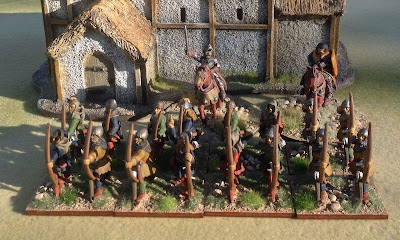This is the second in the Stewart trilogy of novels by Nigel Tranter. Part of my chronological re-read of his historical fiction books.
This book covers the reign of Robert III, King of Scots, from 19 April 1390 to 4 April 1406. I'm afraid the King, like his father Robert II, does not come out of this telling of his story well. Modern historians are a little kinder to him, but only a bit. In Independence and Nationhood (1984), Alexander Grant found Robert III to be "probably Scotland's least impressive king". And there was plenty of competition!
For much of his reign, he was so incapable that a Governor, his brother Robert Duke of Albany, ruled the country. He is the archetypical baddie throughout this trilogy, not without justification. His son, David, also ruled for a period. However, I won't spoil the story if you are unaware of this gruesome episode of Scottish history.
The story is told again through the eyes of Sir James Douglas of Aberdour, who, in the best traditions of Tranter books, finds a way of being close to the significant events of the period. These include the great clan fight at Perth, Henry IV's siege of Edinburgh Castle and the victory against the invading Islesmen at Glen Arkaig. Raiding northern England was a regular event, with mixed success. Henry IV of England was occupied with conflicts with his barons, and the Welsh helpfully distracted him.
However, the book ends with the disastrous defeat at the Battle of Homildon Hill on 14 September 1402. Sadly, the Earl of Douglas ignored the sage advice of our hero and chose to fight within range of English archers, who decimated the Schiltrons and two counterattacks—a lesson the Scots had still not learned.
This is perhaps not one of Tranter's best books, but still a good read highlighting the internal conflicts that weakened Scotland during the period, not helped by a weak king and military incompetence.
 |
| Some of my English longbowmen of the period. The Scots had very few archers to counter these. |

No comments:
Post a Comment